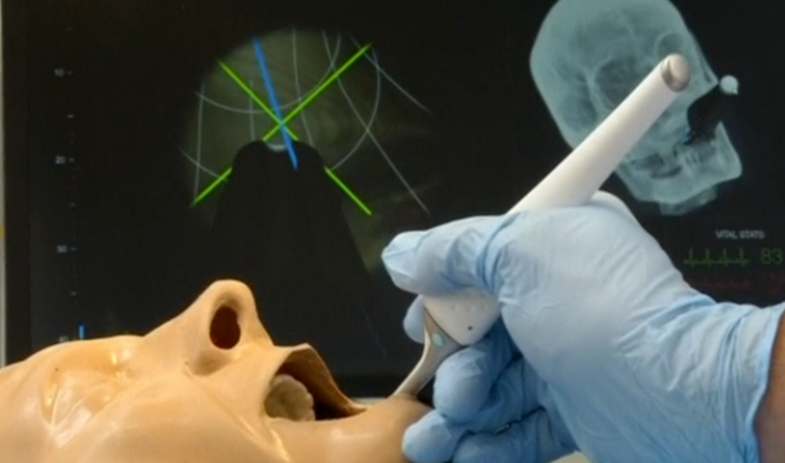Handheld Device For Surgeons Could Turn Off Pain
Making it easy to find hard-to-reach nerves

A new handheld tool called the Chimaera will help surgeons find the right nerve with ease by giving them real-time feedback during operations. This kind of device, its developers claim, will usher in a new age of surgical devices, making delicate nerve procedures easier for surgeons everywhere.
Pain, whether it’s from a stubbed toe or a searing migraine, depends on electrical signals in the nerves. Researchers have been looking into ways to override those electrical signals by tweaking the nerves directly. In recent years surgeons have been able to implant devices called neuromodulators that can stop pain, if they can find the right nerve. But surgeons have a hard time accessing nerves that are behind the eyes or the face because it’s difficult to identify the right one among the jumble, and getting it wrong would be very damaging to the patient.
The Chimaera device helps surgeons identify and access specific nerves. When a surgeon holds the wireless wand-like device near a place where he plans to make an incision, the Chimaera sends data about that spot to a computer where it is combined with information from a CT scan of the patient’s brain taken previously. This information is compiled into a single X-ray-like image that the surgeon can see in real time with Google Glass, allowing her to examine the blood vessels and nerves that surround the place of the incision so that the surgical tool is as precise as possible. Once the incision is made, the Chimaera can help the surgeon damage as little as possible on its way to the desired nerve, where the surgeon can implant the neuromodulator device.
Right now these most delicate procedures can only be conducted by a handful of surgeons worldwide, Reuters reports. But the Chimaera could make neuromodulators so much easier to implant that they could become more commonplace. That’s good news as the devices are becoming increasingly advanced—one day soon patients who feel a migraine coming on could simply “dial down” their pain from their smartphone, as Simon Karger of Cambridge Consultants told Reuters.
This initial version of the Chimaera is essentially a “concept car,” and its developers are currently looking for partners to produce it at a large scale. But for this company, Chimaera is merely the first of what will likely be many devices that give surgeons more feedback during a procedure, which will make surgery easier and more precise.